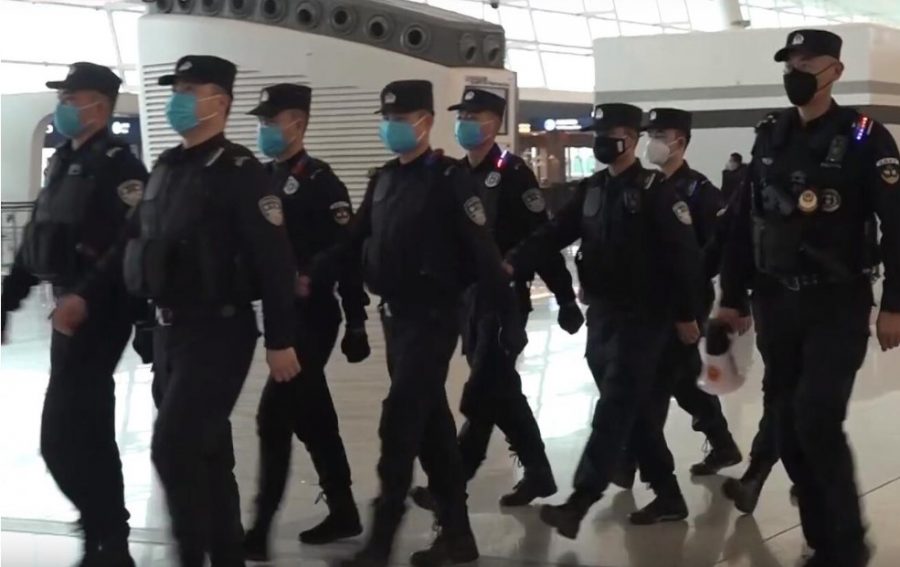Opinion | There’s still hope to fight coronavirus in globalized world
Photo Courtesy of China News Service
Policemen wearing protective masks patrol the Wuhan Tianhe International Airport during the coronavirus outbreak on Jan. 22.
March 30, 2020
As nice as it would be to believe that we can remain unaffected by events happening in other parts of the world, the coronavirus is a pesky reminder that there’s no such thing as true isolation. The world is more interconnected than ever, and it’s never been easier to spread a viral pandemic.
Flights go in and out of cities every day, trains carry passengers across entire continents and animals (the source of coronavirus) don’t adhere to our artificial political borders. It might seem that the virus, ten million times smaller than us, will triumph. But that future is not set in stone. With a public health overhaul, better education and restricted travel, we stand a good chance at stopping the coronavirus from disrupting life as we know it.
Singapore is not taking its outbreak lightly. According to Business Insider, those confirmed to have the coronavirus are immediately subjected to lengthy questioning about where they’ve been and with whom they’ve been in close contact. But they’re not stopping there. The government of Singapore is using surveillance footage, ATM transactions and human observers to catalog every movement an infected person makes.
These measures sound extreme. And maybe they are. But other societies can take notes on Singapore’s overwhelming commitment to stopping the spread of infectious diseases, which include a fully funded Ministry of Health and a widespread government messaging campaign.
At the core of a viral outbreak is person-to-person contact. Therefore, it’s imperative that people be up to date with the latest knowledge about the disease and what the incoming science says.
Get The Daily Illini in your inbox!
This was a big problem in 2014 when Ebola struck western Africa. Burial customs in some of those cultures include touching corpses, an action spread the virus further among people at the funeral of a recently deceased person who still had the Ebola virus inside his or her body. Changing habits is difficult for people, so local governments had a hard time getting through to these communities that this type of burial practice was not safe.
Governments have a responsibility to provide their citizens with good science, and citizens have a responsibility to their fellow citizens to follow that science.
Another option worth looking at is implementing travel bans. Measures like these restrict human travel and can stop the spread of the virus for a time, but they come with perverse consequences. Ann Rimoin, professor of Epidemiology at UCLA, says that people are going to find a way to enter the country, legally or not.
After all, we had an illegal immigration problem before the coronavirus. And if a travel ban makes people want to enter the United States even more, they resort to illegal measures, which makes it even harder to track them than if they entered legally. That being said, travel bans can halt the virus for at least a short amount of time, hopefully enough to find a vaccine.
The measures we take now aren’t just about coronavirus. They are also about what comes after coronavirus. If we want to survive the next pandemic, we must learn from the mistakes of this one.
Mark is a junior in ACES.







